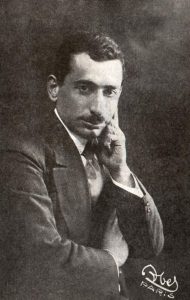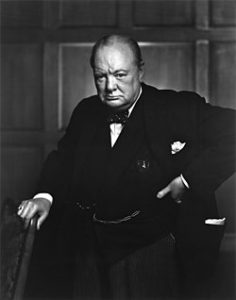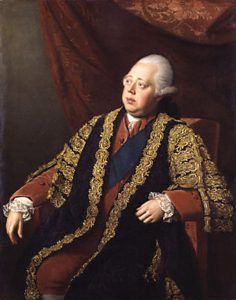The History Department’s Senior Thesis Presentations of 2018
By Gillian Reinhard ’20
Contributing Writer; History Major
On Wednesday, May 2, thesis writers from the class of 2018 presented the culmination of their year-long research projects with topics ranging from Russian Communist influence in twentieth-century China to studies of the environment on the New England coast. Each thesis is the result of countless hours of independent study and serves as a significant achievement for a history major.
The first presenter, Elenore Saunders, introduced her thesis titled “The Bluefish, an Unsolved History: Spencer Fullerton Baird’s Window into Southern New England’s Coastal Fisheries.” This project examined the bluefish, a species of fish that has historically been tied to the disease epidemics of indigenous populations in early America. Ms. Saunders also explored the negative stigma placed on the species and historical comparisons of the fish to wolves.
A Conversation with Professor of History, Emeritus, Borden Painter
By Brendan W. Clark ’21
Editor; History Major

Professor Borden W. Painter, Jr. ’58, H’95, is an alumnus of Trinity and a former Professor of History, interim Dean of the Faculty, and twice interim President of Trinity College.
Painter’s time at Trinity as a student included participating in football and swimming as well as majoring in history. Painter characterized the importance of “good, close relationships” with the faculty while at Trinity as a major asset to the college. Painter was also active in the Chapel and felt that, ultimately, Trinity was a “great choice” for his undergraduate studies.
“Killing Order”: Talaat Pasha’s Telegrams and the Armenian Genocide–A Lecture by Professor Taner Akçam

By Brendan W. Clark ’21
Editor; History Major
Taner Akçam is a Professor of History and the Robert Aram, Marianne Kaloosdian, and Stephen and Marian Mugar Chair in Armenian Genocide Studies at Clark University. He was one of the earliest Turkish academics to acknowledge the Ottoman commission of the genocide.
The Armenian Club of Trinity and the History Department welcomed Professor Taner Akçam, Professor of History and the Robert Aram, Marianne Kaloosdian, and Stephen and Marian Mugar Chair in Armenian Genocide Studies at Clark University to Trinity on Monday, March 19th. Professor Akçam spoke on his newest book, Killing Orders: Talat Pasha’s Telegrams and the Armenian Genocide. He discussed the significance of the telegrams and their role in affirming the Ottoman governments involvement in many of the events underscoring the Ottoman Empire’s perpetration of the Armenian Genocide.
Akçam began by addressing the continuing denials of the Turkish government, who deny the occurrence of the Armenian Genocide itself. This argument, argued Akçam, rests on the supposition that there was never an official decision by Ottoman authorities to exterminate Armenians. To augment their claims, Akçam cited the two strategies pursued by the deniers: that they have consistently hidden or destroyed the bulk of documentary evidence and that they continue to deny the existence of certain available documents.
“Great Pleasure and Advantage”: Richard Toye and the Parliamentary Oratory of the Rt. Hon. Sir Winston Churchill
By Brendan W. Clark ’21
Editor; History Major

The Trinity College History Department had the pleasure of receiving a visit from Richard Toye, Professor and Department Head of History at the University of Exeter, on Thursday, February 22. Professor Toye is a historian of Churchill and has a distinguished career, having written a number of publications including Lloyd George and Churchill: Rivals for Greatness, Churchill’s Empire: The World That Made Him and the World He Made, The Roar of the Lion: The Untold Story of Churchill’s World War II Speeches, and Rhetoric: A Very Short Introduction.
In his lecture, Toye challenged us to consider other factors that influenced the decisions of Churchill’s rhetoric. One of the first factors Toye examined was the structure of the House of Commons chamber itself. In 1941, the house was bombed during the Blitz and a fervor developed over whether or not the chamber should be reconstructed. Toye described the importance of the original design to Churchill, noting that Churchill found the American rotunda design “fatal to democracy.” The intimacy of the chamber and its ability to facilitate the conversational style, which Churchill himself advanced, was critical to the Parliamentary tradition within Britain.
The Parliamentary Practice of the “Putting Out of the Wig”
By Brendan W. Clark ’21
Editor; History Major
I wrote this not as an assignment but for publication here after being inspired by the mention of this practice in my Parliamentary Debate class with Professor Jennifer Regan-Lefebvre. What started as a search for an answer became an exhilarating six-hour review through the annals of British parliamentary history.

On the evening prior,[1] the question was posed in a general sitting of History 270: Parliamentary Debate, a course duly held under the tutelage of one Dr. Jennifer Regan-Lefebvre, a professor of British History, inter alia, at Trinity College, as to the ambiguity of the nature of Parliamentary tradition surrounding the “putting out of the wig,” as it is so-called in the Parliamentary tradition.[2] Ergo, it stood within my earnest desires and in keeping with the general station of my inquisitive character to endeavor to establish, through scholarly review and research, the history of this unique practice. It is my hope that the forthcoming may provide an answer to this most perplexing and under-researched historical oddity in Parliament.